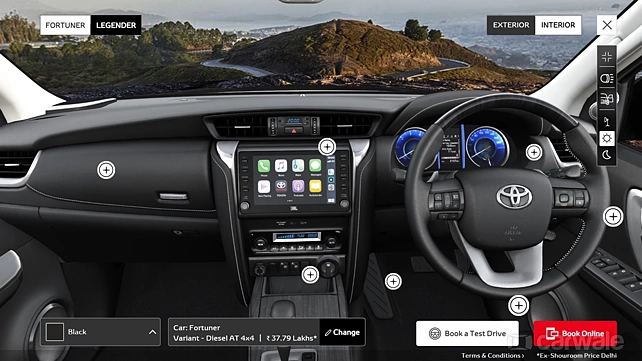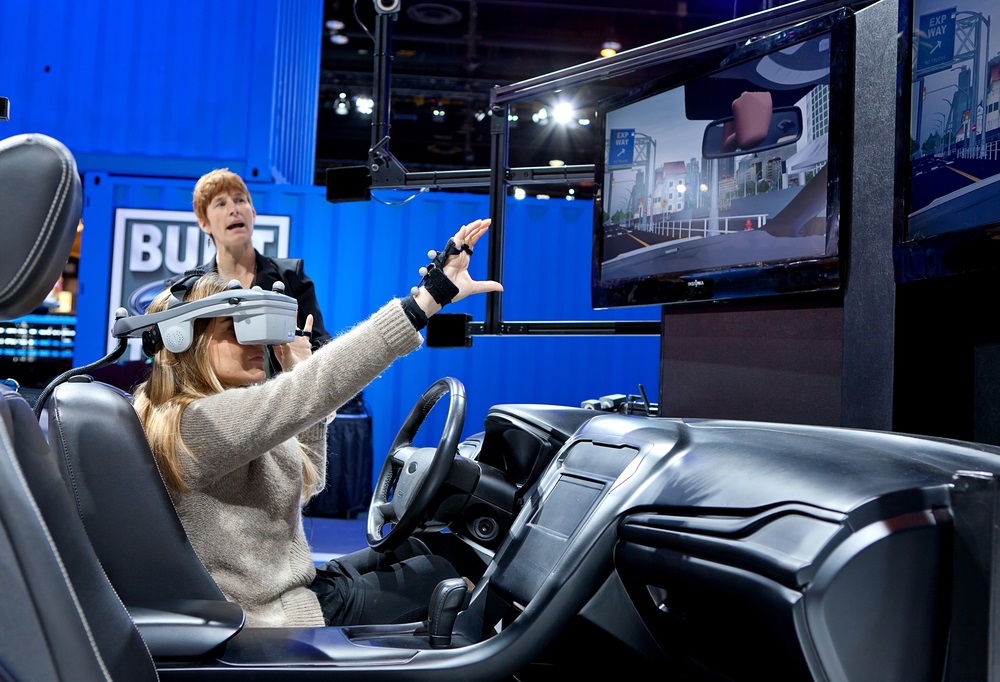Many car manufacturers have recently introduced virtual showroom services to compensate for the lack of footfall in their dealerships – a ripple effect resulting from the pandemic, which has the potential to last for the foreseeable future. In addition, many consumers in general have become more familiar with shopping online and ordering their items via ecommerce.
At the same time, VR/AR technology is becoming more advanced, which is enabling 360-degree views of cars to allow for sophisticated virtual showrooms, and brands like Tesla are pioneering an online sales model for their vehicles. What does this shift to digital indicate for the future of the automotive industry and the way in which vehicles are sold?
The Ripple Effect
The COVID-19 pandemic has caused a ripple effect which has impacted businesses in various different ways, across multiple different countries. One of the general changes that we have witnessed is a rapid shift from offline-to-online. With the implementation of policies such as lockdowns and social distancing, it’s not surprising that the automotive industry has been hit particularly hard by these changes.
Traditionally a very personal and face-to-face business in which customers were able to physically browse a selection of cars in the showroom, car dealerships have been forced to adapt to these changing circumstances in order to stay relevant. During lockdowns, most dealerships achieved this through operating a click and collect service. Although this did not allow consumers to browse around the store in person, they have been able to purchase a car online or over the phone and then collect it at the dealership, or have it delivered to their homes. But is this just a ‘suitable alternative’, or do consumers actually prefer this hands-off approach?
According to a survey by McKinsey & Company, “Digital becomes more important along the entire purchase funnel; less than a third of younger consumers prefer conducting car sales & aftersales in person at a dealership; Respondents are even more interested in contactless services, approximately half of respondents willing to pay extra for this service”. [1]
This evidence suggests that this trend may be here to stay; it appears that the driving force behind the shift to digital was not just born out of necessity, but in fact may be a permanent fixture due to consumer preferences. Which begs the question: what other initiatives are being rolled out in an attempt to provide customers with a more online purchase experience?
Virtual Showrooms
One of the recent ideas that is being introduced by the likes of Toyota (amongst many others) is that of virtual showrooms – the aim being to replicate the traditional showroom, but digitally. It enables customers to browse a dealership’s full range of vehicles online and choose a car which they’d like to examine further. Then – according to Toyota – for example, “They will be provided with 360-degree external and internal views, while also being able to check out all the available trims and colour options of different vehicles.” [2]
An example of what this could look like is outlined below:

The image above gives you an idea of what Toyota’s virtual showrooms have to offer, demonstrating the interior view of their Fortuner model. Toyota also offers – thanks to their augmented reality technology – the possibility of seeing what their cars would look like when parked in your garage. The virtual showroom can be accessed by anyone through multiple devices, including smartphones, laptops, tablets and desktops.
Tesla: Leading the Way to a Digital Revolution
There has been a lot of talk in the media regarding Tesla – an electric vehicle manufacturer run by Elon Musk. We would all be hard-pressed to find someone who has not at least heard about Tesla – so how is this innovative electric-only firm reacting to the digital revolution?
It turns out that Tesla are actually taking it a step further than Toyota and many others – they are going all-in on the online space. This means that, as opposed to the hybrid model that Toyota and many other brands are offering, Tesla is fully transitioning to ‘online-only’.
According to CEO Elon Musk himself: “We will be closing some stores, some reduction in headcount as a result – there’s no question about that.” [3] In addition, he noted that “A small number of Tesla stores will remain open as galleries, showcases and Tesla information centers, where customers can learn about the company’s products, and buy Tesla merchandise.” [3]
This would seem to suggest that the car dealership is a thing of the past – not only do two thirds of consumers now prefer doing business online, leading brands such as Tesla are embracing this shift completely, to the point in which their stores are merely galleries.
Therefore, if Toyota and even the likes of Tesla are both improving and going all-in on their digital strategies respectively, is it too late for other brands to get involved too? Or is there still an opportunity for other businesses to be agile and adapt to the ever-changing circumstances that we’re experiencing today?
The Future of the Automotive Industry
So, with consumer behaviour shifting from offline-to-online (whether purely online shopping or a hybrid version, such as click-and-collect) in addition to advancements in virtual showroom technology, the question of the future of the automotive sector naturally arises. In essence, what does this indicate for the future of the industry and the way in which vehicles are sold?
Clearly, we are experiencing a digitalisation of the automotive industry. We have already acknowledged that this may not be solely out of necessity, but actually due to consumer preference. This points towards a need for automotive companies to consider their digital transformation, as well as their ecommerce strategy – but what does that mean?
During the pandemic, we have seen a lot of businesses shift their focus from bricks-and-mortar stores towards increasing their online presence. Companies within the automotive industry may need to adopt a similar approach. This could mean building an online store or marketplace in which they can offer new and used vehicles, as well as parts and accessories, all on one single platform. This would allow such businesses to take advantage of the digital shift that we have been experiencing, and provide the digital one-stop-shop model that Amazon has proven. BMW seized this opportunity by building their own marketplace with Autofixa.
But what if you are not ready (or not able) to make such a significant investment into your digital offering? Smaller brands, such as individual dealerships, come to mind. The answer is that digital is certainly not going anywhere anytime soon. Although the shift may have started out of necessity, most consumers now prefer a more online, hands-off approach – even with an experience such as buying a car where an in-person viewing was traditionally so crucial.
This means businesses are being forced to adapt or risk being left behind and lose meaningful market share. If you are a smaller business, you may want to consider engaging as a supplier on marketplaces such as the Autofixa marketplace. Instead of risking or losing your market share, marketplaces such as Autofixa allow you to list your vehicle parts and accessories so that you can benefit from this digitally-led growth, without committing to a significant investment.
Brands like Suzuki, Toyota, Nissan, Honda, Peugeot, Citroen, Renault, Vauxhall, Skoda, Ford, Hyundai, Mazda, Mitsubishi, Volvo and more, are already selling vehicle parts and accessories on Autofixa, developing a new stream of revenue and being part of the digital revolution.
Get in touch with us to learn more about becoming a supplier.
References
[2] https://www.carwale.com/news/toyota-virtual-showroom-all-you-need-to-know/
[3] https://www.cnbc.com/2019/02/28/tesla-shifts-sales-to-online-only.html
